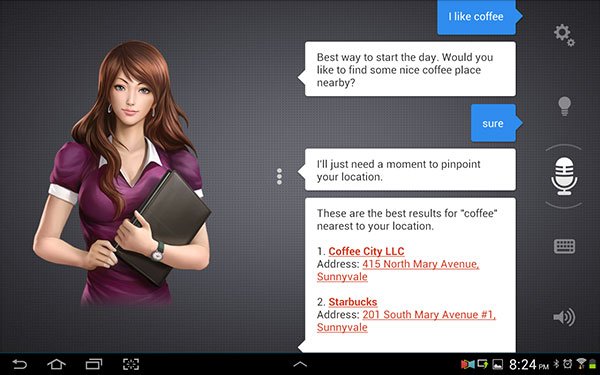
(Image credit: TechPlusme)
Many years ago I had the pleasure of seeing the Connections series on the Discovery channel. If you haven't seen it, you can find it on the web easily. It was developed by British broadcaster, author and all round educator James Burke, that employed a different style of learning. It wasn't just about spouting facts at you, but weaving a web of inter-connecting events. Where the consequences of actions were traced through the ages, leading to what, at least for me, has been a very good way of keeping the information in the brain. He's made plenty of other shows and series with a similar concept, which I recommend with all my heart. But I would like to highlight the beginning of the first episode of Connections Series 3, entitled Feedback. Here I got the first glimpse of what we now know as a digital assistant or AI assistants, like Siri, Alexa, Cortana, Google Assistant, Bixby, Facebook's Jarvis and all the others. At that time, it was called an electronic agent. And although this was 1997, it was right on the money with every aspect of it, apart from one.
James Burke considered that the biggest downside would be having to live with a digital version of yourself. Someone that new everything you are. It order to function properly, it needed intimate details about all the aspects of your life, ranging from the time you get up in the morning to what you spend money on, who your friends are, when you talk to them, what medical procedure's you've had recently and it would do this endlessly. And this electronic agent would interact with everyone's electronic agent, so they would act as the "people" in the old phrase "I'll have my people talk to your people".
The idea that an entity other than you would have so much knowledge about yourself seemed scary back then. That something hidden in a box that you could carry around, and could get stolen or used by someone else could have such a degree of access to your life. It seemed scary then. But the reality of what we got is worse.
All digital assistants today have one intrinsic flaw. They do not exist locally. You may see this as an advantage, because you could, in theory, connect to one from anywhere. Though you can't actually, you can't yell at Alexa through your phone or at Siri through your Windows PC. But because they don't exist locally, it means they can never work without acces to the web. They can never work because their brain is not housed on your system. To be fair, that's because current mobile technology can't properly handle that yet. Though the next generation of Snapdragon chipsets will have improved dedicated AI hardware. Will it be enough to actually run at least the Google assistant locally for things that wouldn't need internet access? To activate it without ever connecting to the web, and just keep it around locally to do small things? Probably. Will it happen? Probably not anytime soon, since it also takes a lot of storage to keep all that data needed to "learn" you. On a PC or a laptop it wouldn't be a problem. But on a phone it's still an issue.
Also, the data collected by the digital assistants are stored on web servers tend to not be your property. And when something is not your property, you really don't have much expectations of it being actually secured. Your data does is not your data, while it is on that server, and will be used in other ways. It may be anonymous up to a point, but in the age where metadata alone can identify much about you, there is no anonymity. And you can never, ever, ever trust Google, Amazon, Samsung or Apple with your data. And a digital assistant, to work properly, to be the electronic agent dreamed of in the '90s, will need all your data.
So until you can keep them locally, until you can have them in a box that can send anonymous requests for information over the web, and communicate in a secure manner with other electronic agents, then we are still at a point where we can't rely on them. I look forward to when the day comes that I will be able to do so. I had hopes for Viv, a new generation of AI assistant created by the people that made Siri (Apple didn't make Siri, in case you were wondering). But it was bought out by Samsung and will probably be integrated into Bixby. Maybe the next-next generation of AI assistants will do the job.
Don't forget to follow me @markosmitnick and upvote.
Look at you, user. A pathetic creature of meat and bone. Panting and sweating as you run through my corridors. How can you challenge a perfect immortal machine?
Imagine how easy Shodan would have been to stop. Just ask it about a product from Tetracorp and see it sweat trying to pretend it doesn't know what that is, leaving it distracted and vulnerable.